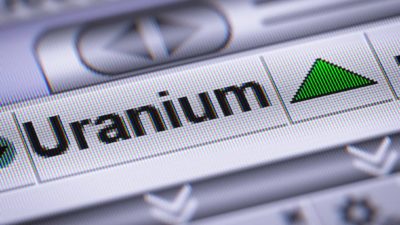For anyone interested in lower-cost shares with longer-term upside, or beginners wanting to dip your toes into the world of small-caps, here's a couple of "possibles" to add to your portfolio.
Infomedia Limited (ASX: IFM)
IFM is an Australian-based information technology company with offices and customers around the world. The range of software it has developed for the automotive and lubricant industries provide online services in areas like locating, quoting, and selling vehicle parts as well as in-depth vehicle servicing data. There is also a range of industry-relevant publications and analytical and research services available.
The IFM share price has grown a super 85.03% over the past year and there was plenty to like about the half-yearly presentation back in February. A lot of things were up, including net profit after tax (28%), revenue (14%), and a very impressive 95% revenue is recurring. As of yesterday's close, the share price had taken a 5% dip over the course the day, perhaps indicating some believe the company to be overvalued.
I still see some striking potential across the business in the long term and I especially note that Infomedia's profit is collected quite evenly from the range of products and services mentioned above, so not all their eggs are in the same basket.
Let's not leave out the huge growth potential in what the company refers to as its "data and insights" side of the business—there's a lot of data to be synthesized into a whole range of uses that should benefit dealers and consumers globally. There is also a modest and growing fully franked dividend representing a 1.82% yield.
Tassal Group Limited (ASX: TGR)
Mostly recognised as salmon farmers, Tassal Group also produce a range of seafood via its subsidiaries. The group has sound fundamentals and a 21.38% increase in share price over the past 52 weeks is a good place to start. Globally, the salmon export industry is dominated by Norway and Chile and, despite the best efforts of sea lice and algae blooms earlier this decade, both nations are recovering with Norway in particular lifting production.
While salmon exports might not be the be all and end all for Tassal (we are only about 2% of global production), the domestic market holds significant potential. According to our own Department of Agriculture, back in 1998/1999 we only ate about 0.8kg of salmon per person, per year. As recently as 2016/2017, we were consuming the equivalent of 2.1kg for each and every one of us annually. The Department also estimates industry production of salmon alone will increase to 71.06 tons in 2023–2024, with estimated value of $898 million in today's dollars.
Tassal has a strong recognisable brand and Australians are increasingly seeking fresh, home-sourced goods, which should stand the company in good stead to grow as the wider domestic industry grows. Tassal is trading today at almost exactly $5 ($5.08 as I write) coupled with a fully franked, full year dividend yield of 3.37%. In addition, many potential investors, like me, will appreciate that Tassal has certification from the Aquaculture Stewardship Council (ASC), an independent not-for profit founded by the World Wide Fund for Nature, which indicates responsible and sustainable farming practices.








